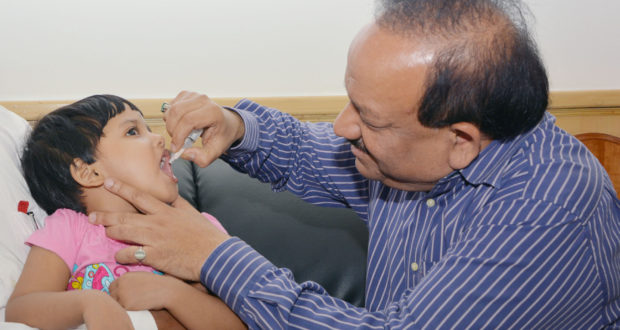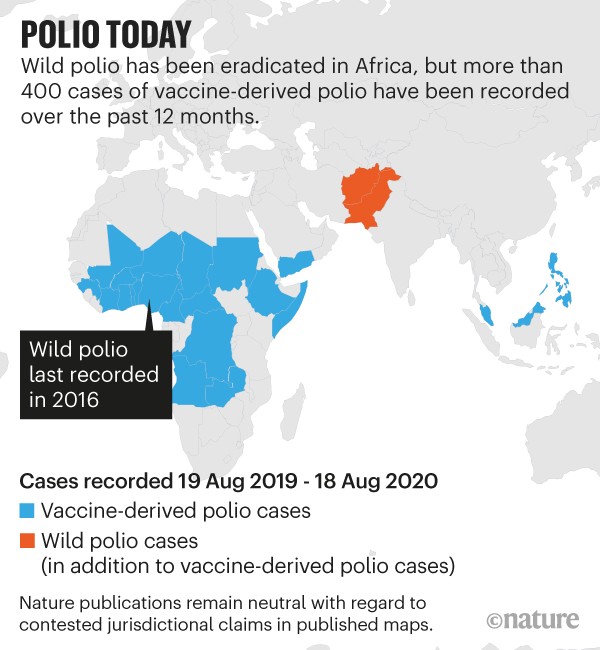The World Health Organization has declared Africa free of wild polio as no new cases of wild poliovirus have been recorded on the continent since 2016, but other types of the virus persist

The continent’s last case of wild polio was recorded four years ago in northeast Nigeria. There are now just just two countries on Earth where the virus remains endemic — Afghanistan and Pakistan, both part of South Asia.
However, Africa’s fight against polio isn’t over as in rare cases, infections can be caused by the oral polio vaccine. These vaccine-derived polio strains can spread in areas where many children have not been immunized, so vaccination must continue.
The Africa Regional Certification Commission, an independent body overseeing the eradication of polio, has certified that all 47 countries in the WHO’s Africa Region have eradicated the virus after a long program of vaccination and surveillance.
Since there is no cure for the disease, which can cause irreversible paralysis and can be fatal if breathing muscles are affected, but vaccination can protect people for life. The certification is a “historic” achievement, says Pascal Mkanda, coordinator of the polio-eradication program at the WHO Regional Office for Africa in Brazzaville, Republic of Congo.
A region is certified as free of wild polio after three years have passed without the virus being detected in any of its countries. Africa’s last case of wild polio was recorded four years ago in northeast Nigeria. As recently as 2012, the country accounted for more than half of all polio cases worldwide.
Chima Ohuabunwo, an epidemiologist at Morehouse School of Medicine in Atlanta, Georgia, who coordinated a project to support polio eradication in Nigeria, says that engaging with traditional and religious leaders was crucial in the effort to persuade parents to vaccinate their children.
Infographic: Polio today: Map showing worldwide polio cases recorded between August 2010 and 2020.
Source: WHO

Despite the eradication of wild poliovirus, Africa’s fight against polio isn’t over. In many countries, vaccination is done with oral drops containing a weakened form of the poliovirus, which sometimes mutates into a strain that can spread in under-immunized communities and cause paralysis.
Vaccine-Derived Polio Cases
Since August 2019, more than 20 countries worldwide have reported cases of vaccine-derived polio (see ‘Polio today’). Because these outbreaks can usually be brought under control with further immunization, countries should continue to vaccinate as many people as possible, Ohuabunwo says.
Wild polio cases have decreased globally by more than 99% since 1988, but the virus is still endemic in Afghanistan and Pakistan, which have reported dozens of cases annually. Unless the two neighbours in South Asia focus on peace-building, reducing vaccine hesitancy, and boosting basic medical services and routine immunizations, it will be difficult to eradicate it here, said Zulfiqar Bhutta, a public-health researcher at Aga Khan University in Karachi, Pakistan. “Polio anywhere is polio everywhere,” he reminded.
